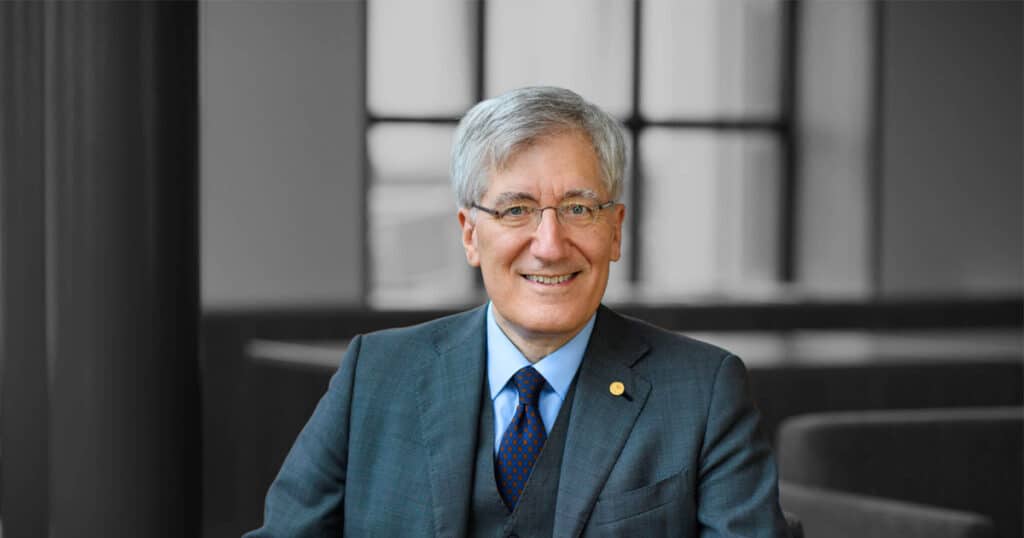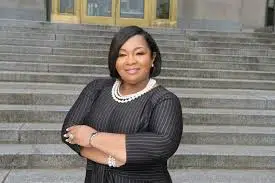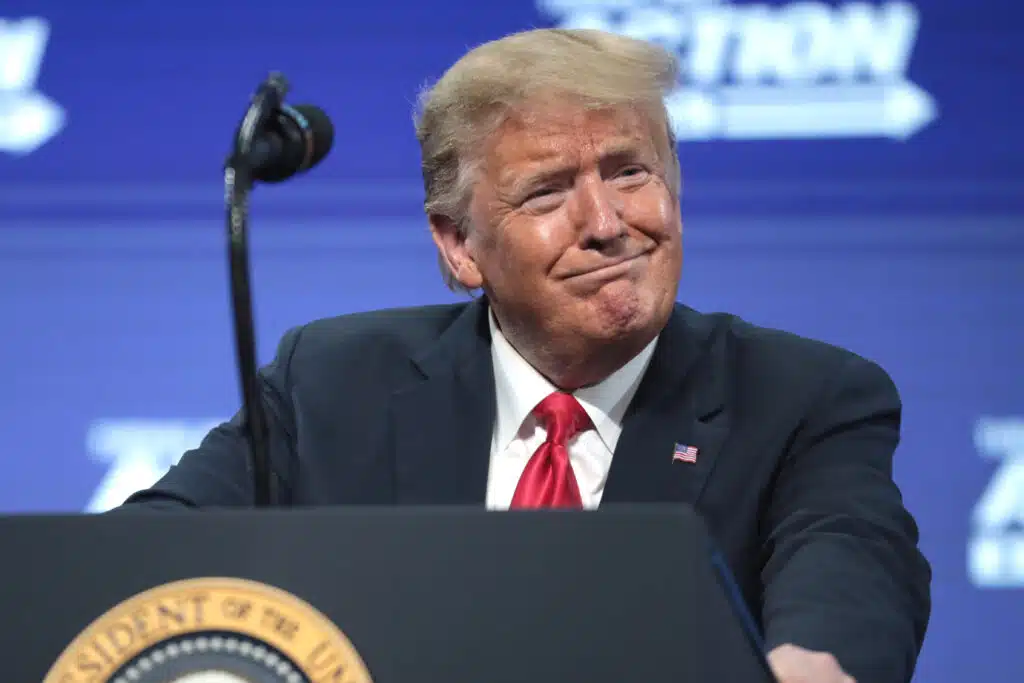
Who’s Afraid of Robert George?
Chalk it up as another victory for the mob.
Earlier this month, Princeton University professor Robert P. George was slated to give a talk at Washington College in Chestertown, Maryland, including “a discussion of the importance of free and open discourse during college of the great questions of human life.” That’s according to an email from the organizing professor obtained by the student newspaper, The Elm.
But apparently “a discussion of the importance of free and open discourse” was too much for Washington College students to stomach.
“Protesters at Washington College … were successful in silencing the speaker, Robert P. George,” reported The Star Democrat, a local Maryland newspaper.
What was George’s crime? Students were outraged about his long history of bravely defending and articulating conservative principles about traditional sexual morality and abortion.
Flyers distributed by Washington College students ahead of the event blasted George, who also serves on the board of The Heritage Foundation, as an “avid homophobe, transphobe, and anti-abortion/uterine autonomy professor & speaker,” reported the student newspaper. (The Daily Signal is the news outlet of The Heritage Foundation.)
Amid the uproar, Washington College President Mike Sosulski emailed students, writing: “It is incumbent upon us as a community to create and maintain an environment in which everyone feels safe to share their ideas, even those that may be controversial or offensive.”
Sosulski himself attended George’s talk. Yet ultimately Washington College caved to the protesters and waved the white flag.
During George’s talk, “shouting from the protesters started right away, breaking up the professor’s speech,” reported The Star Democrat. At one point, Joseph Prud’homme, the professor who had invited George, asked the protesters to stop, noting there would be a chance for questions and discussion when George finished his talk, the newspaper reported.
But Prud’homme couldn’t even finish his plea before a protester cried out, “How did Hitler rise to power?”
“When nobody answered him back, [the protester] said, ‘Because he [Hitler] was given a platform,’” reported The Star Democrat. The newspaper noted that the protester, perhaps dimly aware that resorting to reductio ad Hitlerum generally is not seen as proof of keen intelligence, graciously conceded that George was not actually akin to Hitler.
(It’s good to know that at our institutions of higher education, where students are given the resources and time to dedicate themselves to serious learning, the intellectual debates are on par with … the squabbling that emerges in a Facebook comment section.)
That wasn’t all.
“Mainly it was the two masked individuals leading the protest,” according to The Star Democrat, which described a scene more appropriate for a gauche Broadway musical than a revolution. “As faculty tried to attempt to continue the lecture[, i]t proved futile. Fast-tempo music began blaring, whistles constantly blew, and there was even a little dancing in between the tables.”
How festive.
It would be easy to laugh if only it wasn’t so serious. Because what happened is just another sign of the times, of the Left’s desperate push to silence speech.
The Washington College protesters aren’t some crazed outliers. A new survey of college students shows an alarming number hold horrifying views about debate and free speech.
Around a third of students, 31%, say they believe that it’s always or sometimes acceptable to shout down a college speaker to prevent him from speaking, according to the survey by the Foundation for Individual Rights and Expression and College Pulse.
Even more concerningly, 11% of students say they think it’s always or sometimes acceptable to use “violence to stop a campus speech.”
A considerable number of students also hold that speakers with certain views should never be tolerated. (Remember: George’s speech wasn’t on abortion or LGBT issues, but on free speech.)
Over half of students (57%) agree that a speaker who thinks abortion should be completely illegal should definitely or probably be blocked from giving a speech on campus. A whopping 7 out of 10 (71%) say they think that a speaker who believes Black Lives Matter is a hate group should definitely or probably be blocked from speaking.
Students with cramped minds, preferring to squash speech rather than debate ideas, is hardly a new phenomenon. But colleges and universities have a long history of adhering to the Western tradition of debate and dialogue, of allowing reason to flourish and all ideas to be subject to rigorous discussion and examination.
That’s not what happened at Washington College.
Asked why security allowed the protesters to continue and George’s speech to be ended prematurely, Brian Speer, vice president of communications and marketing at Washington College, emailed The Daily Signal: “The students in this case were not violent nor were they causing physical harm, so security was not called to physically intervene.”
“Faculty and administrators spoke to the protesters numerous times in attempts to convince them to cease their disruptive behavior. This is the protocol that would have been followed for any speaker on campus,” Speer added.
In other words, since the protesters kindly refrained from throwing punches and tossing the odd Molotov cocktail, it was OK that they made it impossible for a top American thinker to address students in a lecture the college had invited him to give.
So much for not letting the bullies win.
But perhaps more interesting than college administrators’ cowardice is why students were so terrified of George’s remarks.
After all, they were told there would be a chance for discussion and questions after George’s speech. If students were confident that it ought to be a right to extinguish the life of an unborn baby, if they felt moral principles clearly illustrated the need for same-sex marriage, if they viewed the science as definitive that a person could be born in the “wrong” body, they would have had a chance to make those arguments, to show George (and the audience) just how weak his reasoning was.
Instead, the protesters shouted, blasted music, compared George to Hitler, and succeeded in ending both the talk and the opportunity for debate.
Why?
Why did the students feel so compelled to silence, not debate, George?
These students may want to ponder that ideas embraced under duress, not free and willing intellectual acceptance, don’t tend to be the ones that endure ultimately.



